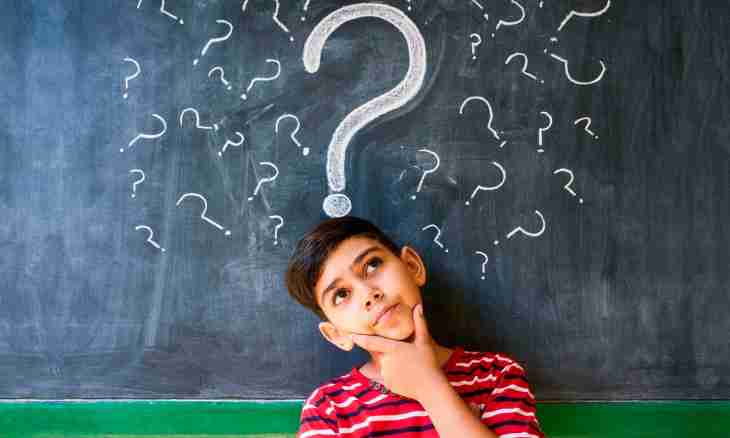Conceptual, or verbal thinking represents the latest type of thinking. It deals with concrete concepts, but not with images and actions. The developed conceptual thinking is especially important for scientists.
As it is formed and what conceptual thinking consists in
Conceptual thinking uses concepts and logical designs. In the development thinking of the person goes through several stages, and conceptual is the latest of them. Before it the person has evident and effective and evident and figurative thinking. In evolution of mankind in general conceptual thinking arose the last too. Accumulation of practical evident and sensual experience contributes to its development.
Prior to development of conceptual thinking the egocentrism is characteristic of the child, he cannot look at events eyes of other people, rise on their place. Gradually accurate concepts strongly enter consciousness of the child, and then thinking begins to work in a different way. These concepts are entered generally during school training. The whole world of the child is not focused around it any more, logical thinking actively develops. Thus, there is a transition from images to the concepts designated by a word.
The developed conceptual thinking does not cover evident and effective and evident and figurative. It contributes to their improvement and the development. The ability to think logically and abstractedly does not cancel practical skills. Moreover, some professions place emphasis on earlier, practical types of thinking. It belongs to technical professions. And at writers evident and figurative thinking is, for example, best of all developed. There are people who practically do not use conceptual thinking, relying on knowledge of life. For the scientific sphere it surely has to be developed. I.Q. depends on it much, in everyday psychology conceptual thinking is quite often equated to mind.
Operations of conceptual thinking
Conceptual thinking uses many operations. Here the main of them. The analysis – the partition of the general on parts and signs. Synthesis – generalization of parts in whole. Comparison – comparison of objects or phenomena. Abstraction – allocation of important signs and derivation from insignificant. The ability to abstraction appears at the advanced school age. Generalization – association of concepts in one category. Systematization – reference of categories to one system. A specification – transition from the generalized knowledge to a specific case. Judgment – ability to understand communication between objects and the phenomena. Conclusion – on the basis of several judgments the conclusion is drawn. Also the ability to remove relationship of cause and effect, to have an idea of the purposes and means is formed.

